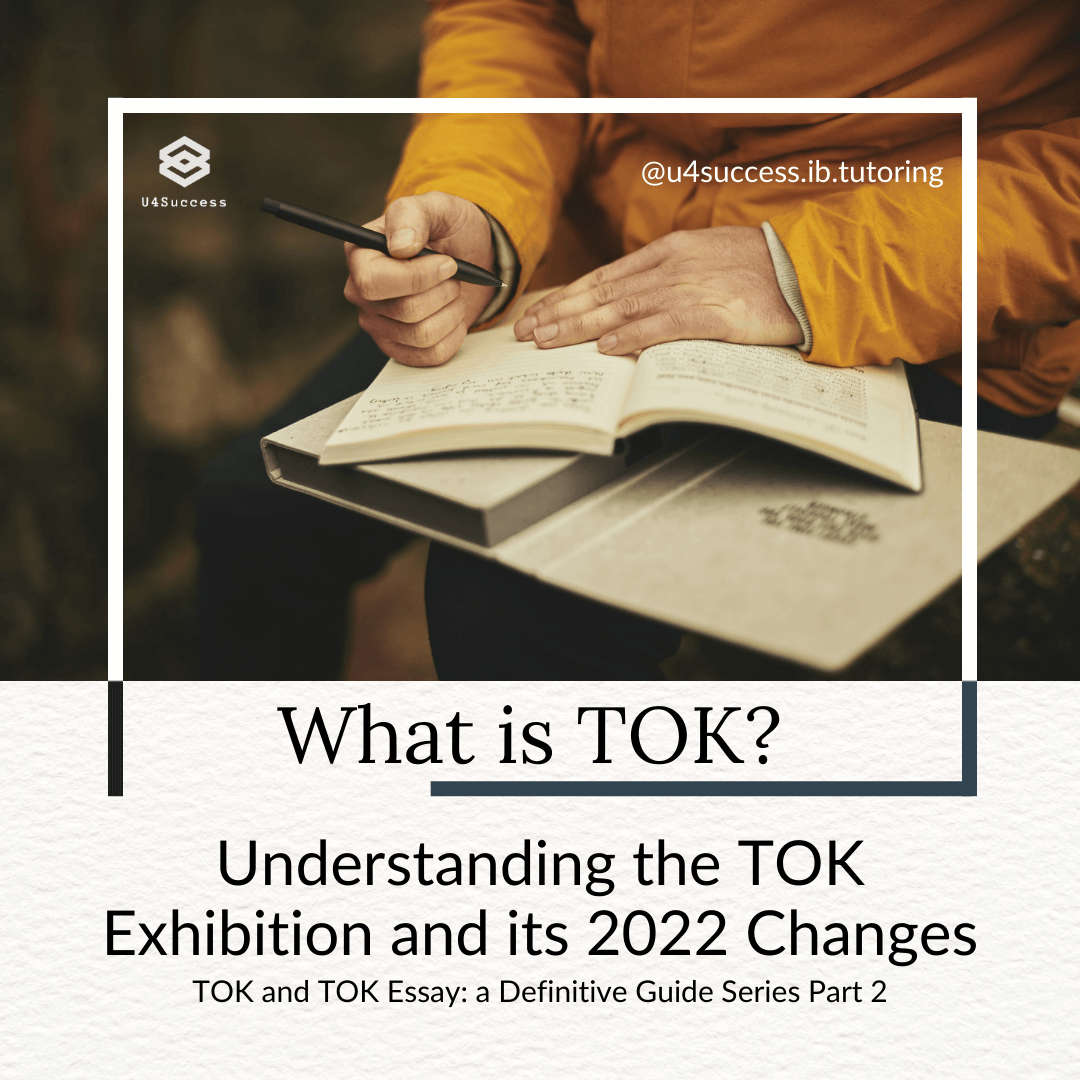Introduction to Writing a TOK Essay: Understanding Its Purpose and Key Instructions
TOK and TOK Essay a Definitive Guide Series: Part 3
Written by Anzhelika Tauber, MSc
TOK and TOK Essay: a Definitive Guide Series Part 3
Welcome to our Theory of Knowledge (TOK) and TOK Essay a Definitive Guide Series! In this series of articles, you will learn everything there is to know about the IB TOK course, TOK exhibition, and writing a compelling TOK essay. So let`s get started!
In the realm of academia and as part of the International Baccalaureate (IB) Diploma Program (DP), students are required to undertake various types of essays as part of their coursework. One such essay is the Theory of Knowledge (TOK) essay. In this article, we will delve into the essence of a TOK essay, its significance, and provide detailed instructions on how to write an impressive TOK essay that fulfills the required criteria.

Table of Contents
- What is a TOK Essay?
- Importance of TOK Essays
- Writing a TOK essay
- Selecting a Knowledge Question
- Before starting to write the essay
- Structuring the TOK Essay
- Tips on How to Structure Your Essay
- Developing a Knowledge Claim
- Providing Arguments and Counterarguments
- Utilizing Real-Life Examples
- Citing Sources and Referencing
- Reviewing and Editing
- Concluding Remarks
- FAQs
What is a TOK Essay?
A TOK essay is an academic assignment that explores knowledge questions within the framework of the Theory of Knowledge course. It requires students to critically analyze and evaluate different areas of knowledge, such as history, mathematics, natural sciences, ethics, and more. The essay prompts students to reflect on the nature of knowledge, how it is acquired, and its implications in various contexts.
Importance of TOK Essays
No matter how annoying and useless TOK essays might seem to students, TOK essays have a noble purpose. They play a vital role in developing critical thinking skills and fostering an understanding of knowledge as a human endeavor. These essays encourage students to question and examine the foundations of knowledge, the limitations of different areas of knowledge, and the ways in which knowledge is constructed and shared.
Moreover, TOK essays provide an opportunity for students to demonstrate their ability to think analytically, argue persuasively, and support their claims with relevant evidence. By engaging with complex knowledge questions, students can refine their skills in logical reasoning, research, and effective communication.
Writing a TOK essay
1. Selecting a Knowledge Question
A knowledge question is the core element of a TOK essay. It serves as the foundation for your entire essay and should be chosen with care. When selecting a knowledge question, consider its relevance, scope, and potential for exploration. The question should allow for multiple perspectives and provide room for in-depth analysis.
For example, a suitable knowledge question could be: “To what extent does personal bias influence the acquisition of knowledge in history?” This question invites you to investigate the role of subjectivity in historical interpretation, the impact of cultural background on historians’ perspectives, and the challenges of achieving objectivity in historical research.
Luckily, IB students get an already predefined set of prescribed essay titles. Here you can find the current essay titles from May 2023.
2. Before Starting to Write the Essay
There are three key points you should consider before embarking on your TOK essay:
- It is essential to address the essay question directly. Altering the nature of the question or veering off into unrelated topics can result in significant mark losses. The examiner will evaluate your essay based on the given title, so deviating from it entirely may even lead to a score of zero. Regularly and explicitly tie your essay back to the original question.
- Ensure that your essay focuses on “how we know.” This means avoiding excessive presentation of facts and information in the style of an exam answer or an International Baccalaureate (IB) Diploma Programme subject. Additionally, refrain from writing the essay in the format of your Extended Essay (EE). Instead, your Theory of Knowledge (TOK) essay should be a reflective and analytical piece exploring the process of knowledge acquisition.
- Strive for clarity in your writing. While TOK may be perceived as an intellectual subject, using complex vocabulary and intricate grammar to impress the examiner won’t yield favorable results if your writing lacks coherence. Take the time to review your work or seek input from a friend to ensure that your ideas are comprehensible.
You should bear in mind that last point for everything that you write. Your readers will always appreciate a clear, easy, and cohesive text more than a pseudointellectual complex read.
Discover more about the TOK assessment criteria here.
3. Structuring the TOK Essay
To ensure clarity and coherence in your TOK essay, it is crucial to structure it properly. The essay should consist of three main sections: introduction, body, and conclusion.
Introduction
The introduction sets the stage for your essay and provides context for the reader. Start with an engaging opening that grabs the reader’s attention. Clearly state the knowledge question you will be exploring and provide a brief overview of the key arguments you will present in your essay.
Check out the list of compelling phrases to improve your essay here (Link).
Body
The body of the essay is where you develop your arguments and provide evidence to support your claims. Divide the body into several paragraphs, each focusing on a different aspect or perspective related to the knowledge question. Use logical transitions between paragraphs to maintain the flow of your argument.
Conclusion
The conclusion wraps up your essay by summarizing your main points and restating the significance of your arguments. Avoid introducing new information in the conclusion. Instead, provide a thoughtful reflection on the implications of your analysis and leave the reader with a sense of closure.
4. Tips on How to Structure Your Essay
While there is no fixed structure for a TOK essay, the following broad structure can serve as a helpful guideline:
– Introduction (Around 200-250 words): Provide an engaging introduction that clearly presents the essay question and its significance. Define key terms and provide a roadmap for your essay.
– Main Body:
- Part 1 (500-600 words): Develop your argument and explore the first perspective or area of knowledge. Support your claims with relevant examples and critically analyze different viewpoints.
- Part 2 (500-600 words): Continue the development of your argument, focusing on the second perspective or area of knowledge. Again, provide supporting examples and analyze multiple perspectives.
– Conclusion (Around 200-250 words): Summarize your main insights and arguments, emphasizing their implications and broader significance. Reflect on the knowledge explored and consider alternative perspectives or unresolved questions.
Remember, these are suggestions, and you can adjust the order and length of each section based on your essay’s content and flow.
5. Developing a Knowledge Claim
A knowledge claim is a statement that presents a position or argument related to the knowledge question. Your knowledge claim should be clear, concise, and focused. It should also be open to critical evaluation and counterarguments.
For example, a knowledge claim related to the earlier knowledge question could be: “Personal bias significantly influences the interpretation of historical events, leading to diverse and sometimes conflicting narratives.”
6. Providing Arguments and Counterarguments
To support your knowledge claim, present well-reasoned arguments and counterarguments. Each argument should be supported by relevant evidence, examples, and logical reasoning. Consider different perspectives and address potential counterarguments to strengthen your position.
7. Utilizing Real-Life Examples
To enhance the credibility and relevance of your TOK essay, incorporate real-life examples from different areas of knowledge. These examples could be historical events, scientific experiments, ethical dilemmas, or artistic creations. Connect the examples back to your knowledge claim and explain their significance in relation to the knowledge question.
8. Citing Sources and Referencing
When referencing external sources in your TOK essay, adhere to a recognized citation style, such as APA or MLA. Ensure that you provide accurate in-text citations and include a comprehensive bibliography or works cited page. Proper referencing not only acknowledges the contributions of others but also strengthens the validity of your arguments.
9. Reviewing and Editing
After completing the initial draft of your TOK essay, it is essential to review and edit it thoroughly. Pay attention to grammar, spelling, and sentence structure. Evaluate the clarity and coherence of your arguments and refine them as needed. Seek feedback from peers or instructors to gain different perspectives and improve the overall quality of your essay.
Concluding Remarks
Writing a TOK essay can be an intellectually stimulating and rewarding experience. By engaging with knowledge questions, critically analyzing different areas of knowledge, and constructing persuasive arguments, students develop valuable skills for their academic and personal growth.
Remember, a successful TOK essay is one that effectively explores the complexity of knowledge, presents well-supported arguments, and offers thoughtful insights into the nature of human understanding.
Get IB updates in your inbox

Anzhelika Tauber
Anzhelika is a PhD candidate in Genetics and a marketing consultant at U4Success from Vienna, Austria. She leads our website and social media content strategy.
Frequently asked questions (FAQs)
What is the purpose of a TOK essay?
The purpose of a TOK essay is to encourage students to critically examine the nature of knowledge and explore its implications across various areas of knowledge.
How do I select a knowledge question for my TOK essay?
When selecting a knowledge question, consider its relevance, scope, and potential for exploration. Choose a question that allows for multiple perspectives and in-depth analysis.
Can I use personal anecdotes in my TOK essay?
While personal anecdotes can provide context, it is important to focus on broader perspectives and incorporate real-life examples from different areas of knowledge to support your arguments.
Is there a specific citation style for TOK essays?
You can use a recognized citation style such as APA or MLA when referencing external sources in your TOK essay. Make sure to provide accurate in-text citations and include a comprehensive bibliography.
What should I focus on when editing my TOK essay?
During the editing process, pay attention to grammar, spelling, and sentence structure. Evaluate the clarity and coherence of your arguments, and seek feedback from peers or instructors to enhance the overall quality of your essay.
